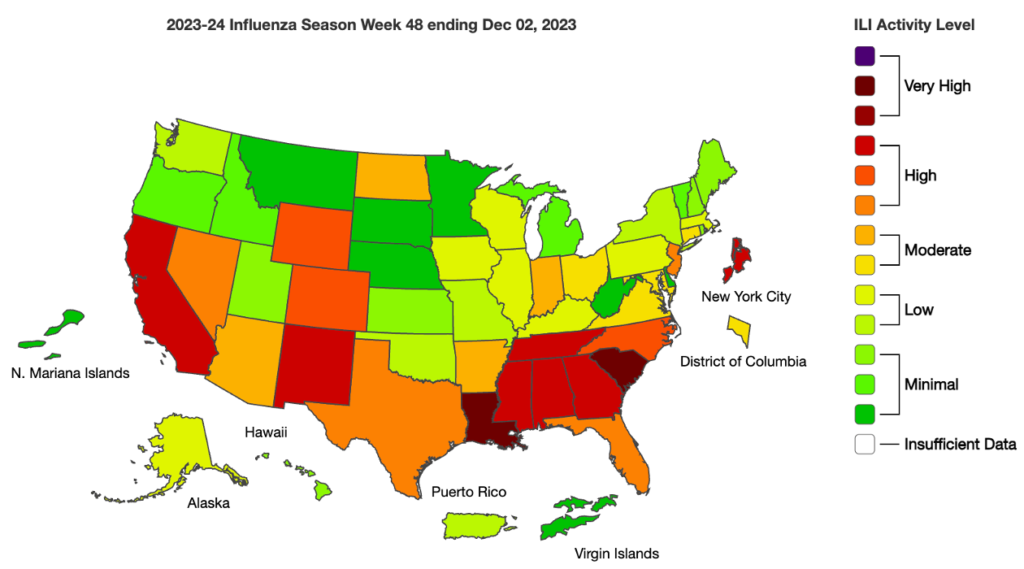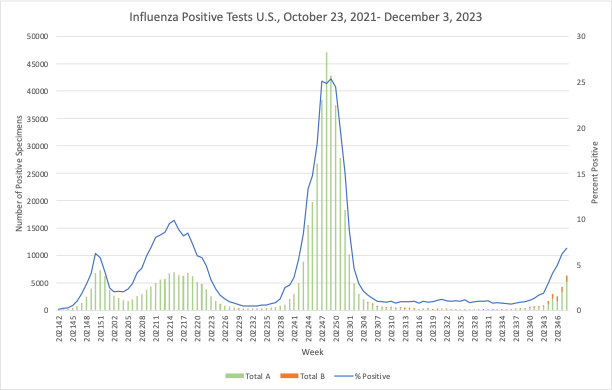Although there have been Salmonella infections linked to cantaloupe in the past, the 2023 Salmonella Sundsvall outbreak is atypical due to the rare Sundsvall serotype and its severe health impact.
As of this writing, the US CDC has reported 230 confirmed illnesses, 96 hospitalizations, and 3 deaths across 38 states, and Canada’s PHAC (Public Health Agency of Canada) confirmed 129 illnesses, 44 hospitalizations and 5 deaths across 6 provinces. Although 2.23% death rate may not seem extremely high, CDC estimates that Salmonella causes about 1.35 million infections, 26,500 hospitalizations, and 420 deaths in the U.S. every year – which is a significantly lower average death rate – 0.031%.
While the most common symptoms of Salmonella poisoning are nausea, fever, stomach cramps, and diarrhea that can be bloody, the Sundsvall serotype of this outbreak has been causing more severe symptoms in more persons. This is particularly being seen in those in long-term care facilities and childcare centers, raising grave concern to both the CDC and PHAC. As stated by PHAC, the majority of the individuals who became sick are children 5 years of age or younger, or adults 65 years of age or older.
The implicated cantaloupes are the Malichita and Rudy brands from Mexico, where studies have found a high prevalence of salmonellae in rivers in the Culiacan Valley. In an analysis of 138 water samples collected between July 2008 and June 2009, Salmonella spp. was isolated from 80.4% (111 samples) of 24 different serotypes, including Salmonella Sundsvall. As identified by Pulsed-Field Gel Electrophoresis (PFGE) analysis, the most common serotype, Salmonella Oranienburg, was shown to have four identifiable populations, with varying distributions across different sampling sites. Salmonella Sundsvall, along with other less prevalent serotypes, displayed indistinguishable PFGE patterns, indicating limited genetic diversity within these specific serotypes.
Additionally, Salmonella is capable of surviving outside a host in tropical regions, such as Mexico, where the environmental conditions can be more suitable for its long-term persistence. It is not known, at this time, if the cantaloupe were contaminated by the use of river water, other ground seepage, or other source, but the high prevalence of the bacteria is certainly of concern.With food poisoning outbreaks having both public health and food safety impacts, watch for our December 20. 2023, Insights article on how TAG sees the new U.S. Traceability Rule facilitating more rapid recall across supply chain branches.
COVID Risk Matrix:

Influenza:


Infectious Disease News:
- The average number of influenza patients per regularly monitored medical institution in Japan this week came to 17.35, down by 3.78 from a week earlier, marking its first week-on-week decline in about three months, the health ministry has said.
- More health care personnel (HCP) working in acute care hospitals were vaccinated against influenza before the COVID-19 pandemic vs during and after the pandemic. Influenza vaccination among HCP increased during the pre-pandemic period from 88.6% during 2017–18 to 90.7% during 2019–20. During the COVID-19 pandemic, the percentage of HCP vaccinated against influenza decreased to 85.9% in 2020–21 and 81.1% in 2022–23.
- Measles cases are rising in Eastern Europe – 20,000 cases in Kazakhstan; in school children in Azerbaijan including 5 deaths; 2000 new cases in Romania – linked to lower vaccination rates.
- Although the UK has experienced a notable number of pertussis cases in recent years, the diphtheria, pertussis and tetanus (DPT) vaccination coverage remains within the recommended range to prevent wider community transmission.
- In Canada the updated Pfizer and Moderna Covid vaccines that target XBB.1.5 were approved earlier this year and now Novavax has been approved as well. Novavax’s upgraded Covid vaccine also targets XBB.1.5 Omicron subvariant.
The Wyoming Game and Fish Department announced that chronic wasting disease (CWD) was detected in a hunter-harvested cow elk in Elk Hunt Area 122 in November. Texas Parks and Wildlife Department also confirmed CWD in a hunter harvested animal recently – a 2-year-old whitetail buck. The disease has been found in both states previously. CWD is not yet known to infect humans, but it is recommended to not consume the meat from any animal that is ill or tests positive for CWD.






